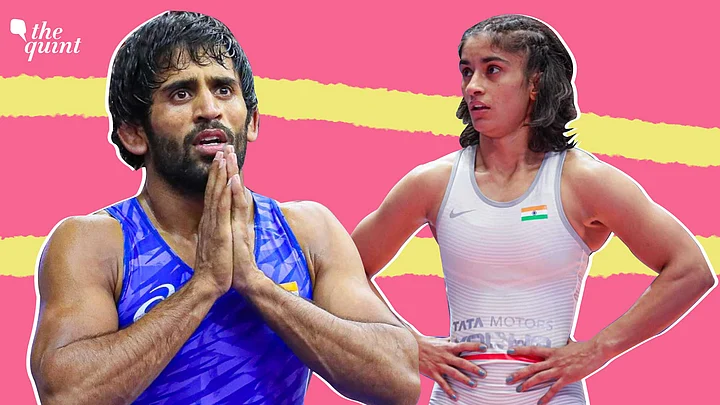Some of the Indian sports community has reeled from shock in the week since it became known that wrestling will eventually not feature in the 2026 Commonwealth Games programme in Victoria, Australia. Some others have been ambivalent, and a few have made peace by accepting reality.
There is no doubt that Indian wrestlers have contributed significantly to India’s medal haul in the Commonwealth Games. Over the years, they have won more than 90 medals, including 41 gold.
The less charitable will say that these have been easier pickings than the Olympic Games or even the Asian Games. But the truth is that India has been a dominant player.
Contrast those numbers with the fact that the last of Australia’s 10 wrestling gold in Commonwealth Games came in 2010. Its wrestlers have found even bronze hard to come by in 2014 and 2018, winning a couple in Birmingham this year.
Should anyone be surprised that, when given the choice, Australians have kept wrestling out of the 2026 Games?
Commonwealth Games Federation (CGF) President Dame Louise Martin has said the 2026 Games programme was rooted in the CGF’s 2026-30 Strategic Roadmap. “It provides the hosts with greater flexibility to propose new sports, especially ones with specific local relevance that will enhance cultural showcasing and increase community engagement,” she said.
Viewed logically and in an unbiased manner, it is clear as daylight that the hosts have been invested with the right to make choices that suit them, including even proposing entirely new sports relevant to their nation, culture, or wider strategy, to drive innovation or enhance cultural showcasing and community engagement.
To be sure, the Indian Olympic Association (IOA), in its avatar as the Commonwealth Games Association India, is a part of the decision-making process at the CGF general assembly and cannot pretend that it was caught by surprise.
It did make some noise in April this year when Victoria unveiled a list of 16 disciplines it would include in the Games in 2026.
Truth to tell, it was not lost on IOA that this list did not include archery, shooting and wrestling. Yet, besides asking the respective national federations to lobby with international federations, there was so little it could do or did. It can comfort itself that Victoria chose the return of shooting sport to the CWG programme.
As Indians, we can post anguished tweets, write letters, launch protests, threaten a boycott and more. While we do that, we must also remember that the bid to withdraw from the 2022 Games in Birmingham ended in a whimper.
And we can respect and accept the host’s right to pick disciplines of its choice and look at the larger picture with some objectivity.
To begin with, we can remind ourselves that the Commonwealth Games Federation has not had it easy finding a host for the 2026 Games.
The Australian State of Victoria was announced as the host as recently as 12 April this year, unlike in the past when hosts were identified after a bidding process seven years before the Games were due.
For another, we can also reinforce our knowledge that some sport will always be on the fringes of such multi-discipline events, fighting to stay within the fold and needing to stay relevant as the governing bodies now lay greater emphasis event-based programmes rather than sport-based programmes as in the past.
It is a known fact that disciplines like boxing and weightlifting, dealing with governance and administrative issues, are living on a knife’s edge.
Even more importantly, in a market-driven sports economy, sporting disciplines have found it necessary to study the gaps between their product and what fans of all generations seek.
And yes, we can remind ourselves that in February 2013, the International Olympic Committee (IOC) executive board voted wrestling out of the 2020 Olympic Games programme.
Low ticket sales, popularity and low TV ratings as well as a lack of oversight and diversity were said to be the reasons for that decision.
FILA, as the United World Wrestling (UWW) was known then, worked overtime with passion and resilience to save wrestling from being excluded until 2024.
It modernised and improved the sport, adding more women’s events and athletes in decision-making positions; making rule changes to let the sport become more exciting and easier to understand.
With a massive thrust on a sport’s youth appeal and CGF empowering hosts to choose a sports programme with innovation and sports/disciplines to drive community engagement, it is inevitable that some traditional sport will end up on the losing side.
The host seeks to balance the appeal of a sport with the benefits they seek even while ensuring all CGAs can compete.
And when we assimilate this, we will realise that it is futile to allege that wrestling was dropped from the Commonwealth Games 2026 programme to deny India a higher place in the medal table.
It is not as if India has threatened Australia’s domination of the Commonwealth Games yet. We will embrace the truth that wrestling lost out to a simple market reality.
(At The Quint, we question everything. Play an active role in shaping our journalism by becoming a member today.)
